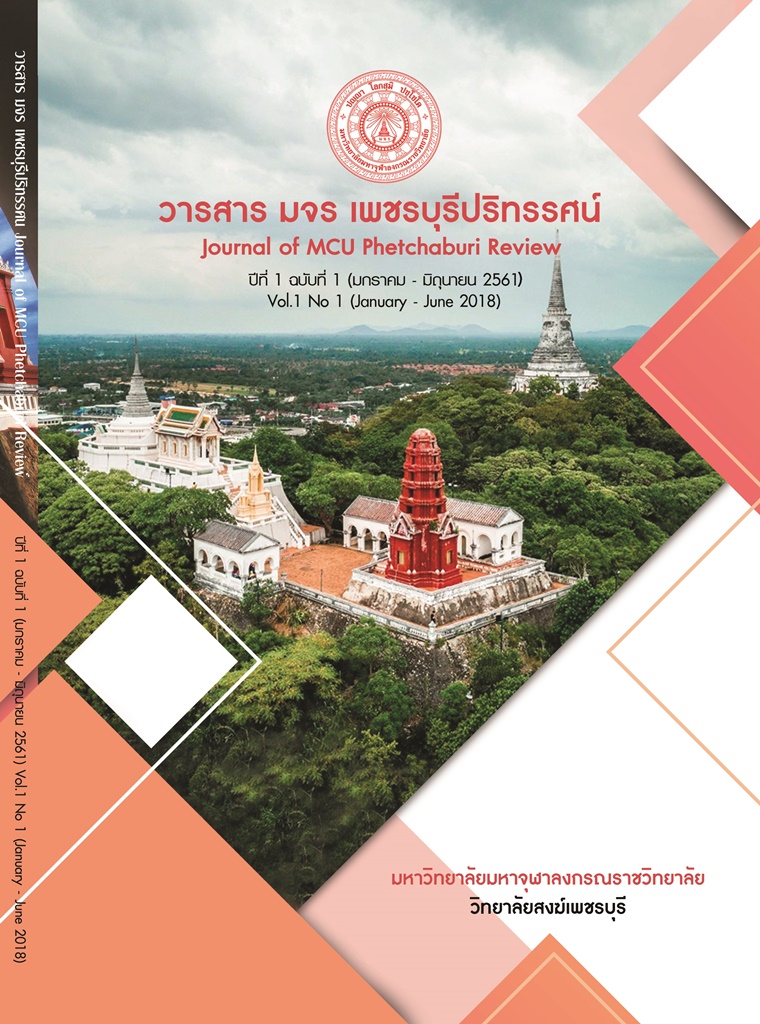HOLISTIC DEMOCRACY
Main Article Content
Abstract
When it comes to democracy, we can all understand the regime which is Government by giving the people the right to freedom in that country is the one who determines, chooses, and has autonomy in both thinking Lives or any act is governed by the laws of that State or country, which on February 12, 1809, Abraham Lincoln, the 16th President of the United States. Said the phrase “Government of the people, by the people, for the people,” and from a speech near the Gettysburg Battlefield, “We will not waste their deaths. In this country, under the protection of God, there will be newborn freedom. And that the Government of the people by the people for the people will continue to live on earth.” The form or regime known as democracy was born and evolved over a long period, with most scholars commenting that the word democracy was conceived in the era of ancient Greece. And has developed Evolved according to the age in each region until it set until the present day. Many countries around the world use democratic governance. Including Thailand that adopted a form of democracy is a democracy with the King as Head of State. The nature of Government in the form of democracy is direct, indirect, as well as the expression of the power of various persons, etc. Therefore, democracy can be regarded as belonging to all people under the State or a country with a democratic form of Government.
Article Details
References
ทิพย์พาพร ตันติสุนทร. (2554). การศึกษาเพื่อสร้างพลเมือง. กรุงเทพมหานคร: สถาบันนโยบายศึกษา.
ธเนศวร์ เจริญเมือง. (2548). แนวคิดว่าด้วยพลเมือง. กรุงเทพมหานคร: สถาบันพระปกเกล้า.
ธัญญาลักษณ์ วีระสมบัติ. (2546). การใช้ Competency เพื่อเพิ่มประสิทธิภาพการฝึกอบรมในองค์กร. วารสารบริหารธุรกิจ, 99(3), 55-57.
ธัญธัช วิภัติภูมิประเทศ. (2556). ผลของการใช้กิจกรรมมาเรียนรู้โดยใช้ปัญญาเป็นรากฐานในวิชาการศึกษาเพื่อสร้างพลเมืองที่มีต่อความตระหนักในความเป็น พลเมืองของนักศึกษา. ใน (รายงานการวิจัย). มหาวิทยาลัยธุรกิจบัณฑิตย์.
นิภาพรรณ เจนสันติกุล. (2556). โครงสร้างทางสังคม บทบาทและนโยบายสาธารณะกับความเป็นพลเมือง. วารสารศิลปะศาสตร์, (5)1, 53 – 54.
บวรศักดิ์ อุวรรณโณ. (2554). ปาฐกถาพิเศษในกรปิดประชุมวิชาการการเป็นพลเมืองกับอนาคตประเทศไทย. ใน เอกสารการประชุมวิชาการ สถาบันพระปกเกล้า ครั้งที่13 ประจำปี 2554. บ.จรัญสนิทวงศ์การพิมพ์.
บวรศักดิ์ อุวรรณโณ และถวิลวดี บุรีกุล. (2548). ประชาธิปไตยแบบมีส่วนร่วม. กรุงเทพมหานคร: สถาบันพระปกเกล้า.
ปริญญา เทวานฤมิตรกุล. (2555). การศึกษาเพื่อความเป็นพลเมือง (Civic Education): แก้ปัญหาการเมืองไทยโดยสร้างประชาธิปไตยที่ “คน”. ใน เอกสารการประชุมวิชาการสถาบันพระปกเกล้า. ครั้งที่ 13 ประจำปี 2554. บ. จรัลสนิทวงศ์การพิมพ์.
เยาวภา ประคองสินธิ์ . (2550). ประวัติศาสตร์การเมืองการปกครองของไทย สำหรับวิชาสังคมศึกษา. ขอนแก่น: โรงพิมพ์คลังนานาวิทยา.
วิสุทธิ์ โพธิแท่น. (2550). เนวคิดพื้นฐานของประชาธิปไตย. กรุงเทพมหานคร: สำนักงานคณะรัฐมนตรีและราชกิจจานุเบกษา.
เอนก เหล่าธรรมทัศน์. (2551). การเมืองภาคพลเมือง. กรุงเทพมหานคร: สถาบันพระปกเกล้า.
Gabriel A. A. & Verba, S. (1956). The Civic Culture : Political Attitudes and Democracy in Five Nations. Boston: Little Brown & Company.
Kenneth P. L. (1965). Political Socialization. New York: Oxford University Press.


